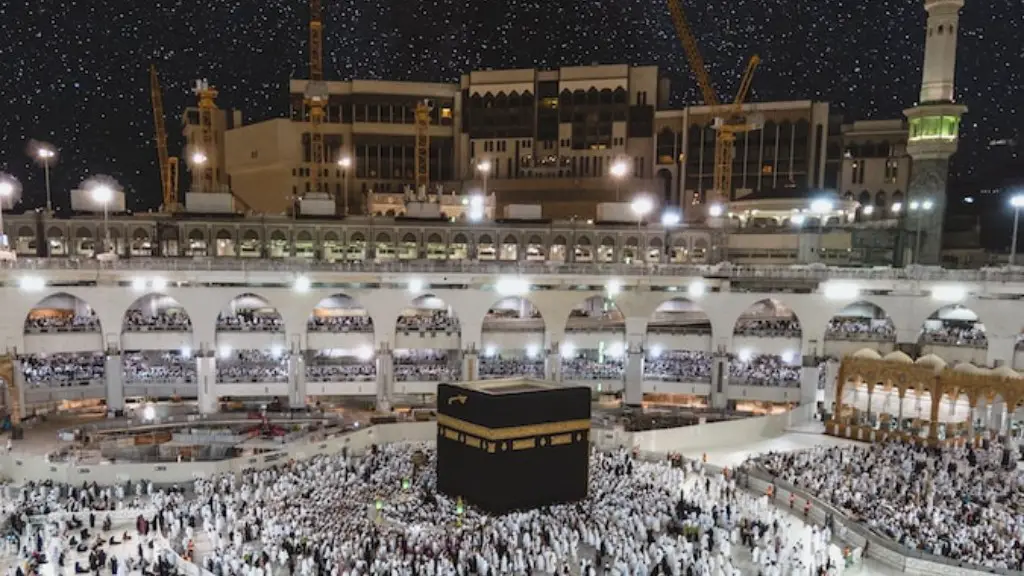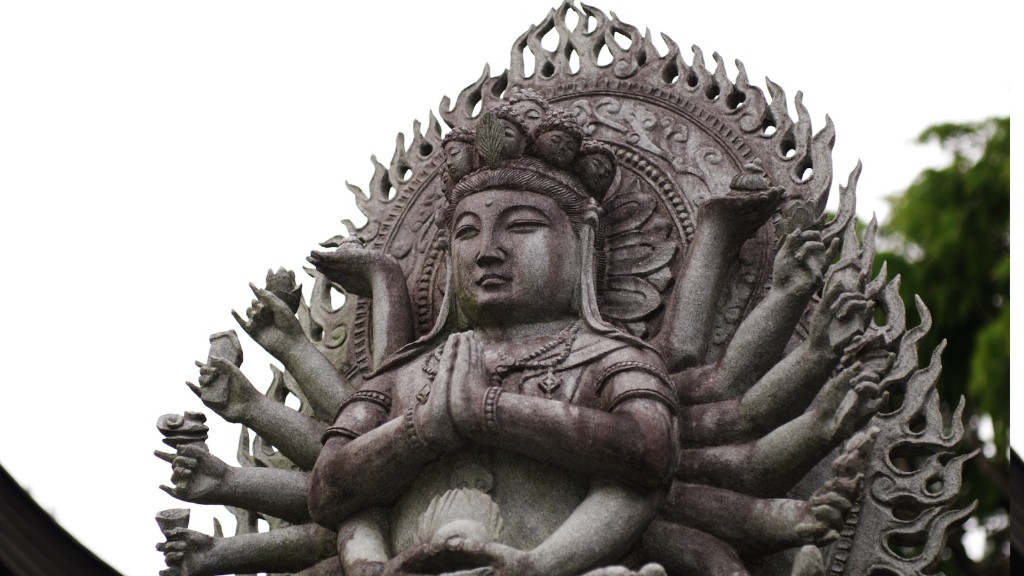The Catholic Church has long been a major force in the spread of Christianity. With its vast array of teachings, ceremonies, and rituals, the Catholic Church is responsible for the global dissemination of Christianity and its values. This article will examine how the Catholic Church influenced and contributed to the global proliferation of Christianity.
The foundation of the Catholic Church came out of the teachings of Jesus Christ and the apostles, and their evangelization of Christianity. As their teachings began to spread, the Church became more organized and powerful. This is why there is a clear hierarchical system in the church that exists today, with the Pope at the top.
The Catholic Church was able to spread Christianity around the world by leveraging its immense power, influence, and resources. It sent out missionaries to convert people, established seminaries and universities to educate clergy, and built churches, hospitals, and other institutions where people could learn more about and practice the religion. Additionally, the Church was able to spread the religion by legislating laws that were friendly to it, such as banning or suppressing other faiths or practices that were contradictory to Church doctrine.
Furthermore, the Catholic Church took advantage of technology in the spread of Christianity. By using print media, television, and radio, it was able to spread its teachings and beliefs to a wide audience, allowing Christianity to become a truly global religion—over 2.3 billion people now identify as Christian.
In addition to its influence, the Catholic Church provided stability during times of crisis. For example, when Europe was affected by plague and famine during the Middle Ages, the Church was a source of comfort and support for many people. It also provided a safe haven from political turmoil, especially during times of invasion or war.
What’s perhaps most significant about the Catholic Church is its ability to incorporate varying traditions and beliefs from different cultures. Instead of seeing these cultures as threats to its authority, the Church used its power and influence to meld the traditions into something that is familiar to all Christians, without compromising its core doctrine.
The Catholic Church has had an immense impact on the global spread of Christianity. Through a combination of power and influence, technological advances, and religious integration, the Church has been integral in making Christianity a global religion.
Growth of the Catholic Church
The Catholic Church has become one of the largest religious organizations in the world over the years. Currently, the Church boasts over a billion members and is active in over 200 countries. It has been able to grow and expand due to a variety of factors, including the spread of the Christian gospel through missionaries, the institution of seminaries and universities to educate clergy, and reforms and adaptations to remain relevant to the times. This massive size also allows the Catholic Church to reach out to its members in a variety of ways, such as websites, radio and television shows, social media accounts, and other media.
The Catholic Church has been able to stay relevant with its members and those outside of the faith through its stance on social issues and its organization of events like the World Youth Day. By demonstrating its commitment to social justice and its desire to connect with young people, the Church has been able to remain relevant to the modern world.
The growth of the Catholic Church also has political and social implications. As the Church continues to expand and its teachings become more widely accepted, it has more power to influence public opinion, either through its teachings or its statements of opinion. This can have positive effects, such as its work to end poverty and its advocacy for human rights.
Overall, the growth of the Catholic Church is an example of the successful spread of Christianity around the world. Its influence has allowed it to become one of the most powerful religious organizations in the world, and it continues to grow and adapt in the modern era.
Catholic Church and Politics
The Catholic Church has also had a powerful influence on politics throughout history. It has been an advocate for social justice, seeking to bring about reforms that benefit the common good. In addition, the Church has sought to protect religious freedom and the rights of the poor and oppressed.
In addition, the Catholic Church plays an integral role in the international political arena. It is recognized as a sovereign state and is allowed to interact with other political entities, such as the United Nations. As such, it is able to wield considerable power and influence in global politics.
The Catholic Church has also had a powerful impact on the law. For example, the Church was instrumental in the passage of the Universal Declaration of Human Rights in 1948, which set a global standard for rights and freedoms. Additionally, in the past century, the Church has been at the forefront of the fight to abolish capital punishment and to end discrimination on the basis of gender, race, and sexual orientation.
Overall, the Catholic Church has had a profound influence on politics throughout history. Its teachings and positions on social and political issues have been an important factor in the spread of Christianity, as well as in the evolution of international political and legal systems.
Catholic Church and Social Ethics
The Catholic Church has also been a major source of guidance when it comes to social ethics. Its teachings on moral issues such as abortion, contraception, and divorce have shaped the moral values of many people around the world. Additionally, the Church has consistently advocated for protecting human dignity, the sanctity of life, and the value of work.
The Catholic Church has also been at the forefront of the fight for social justice. Its statements and documents, such as the encyclical “The Joy of the Gospel,” have spoken to issues such as poverty and discrimination, and called for a greater commitment to caring for the world’s poor and marginalized.
The Catholic Church has also been influential in the environmental movement, advocating for the protection of the environment and resources. It has encouraged sustainable development and the adoption of policies that protect the environment and the welfare of people. Additionally, the Church has provided a spiritual framework for understanding and respecting the environment, elevating its importance in people’s lives.
Overall, the Catholic Church has been a major source of guidance in social and ethical issues throughout the world. Its teachings have shaped the moral values of many people and its advocacy for social justice and environmental protection has helped to make the world a better place.
Catholic Church and Science
The Catholic Church has also played an important role in the development of science and technology. Over the centuries, the Church has funded and encouraged scientific research, especially during times when science was not highly valued. For example, the Church provided funding and support to Galileo Galilei and his work on astronomy, which revolutionized scientific thought.
The Church has also been at the forefront of modern science, with its leaders and institutions playing an important role in the development of new medical and technological advances. For example, the Church has helped to pioneer the field of biotechnology, leading the way for research into gene-editing and other medical breakthroughs.
Additionally, the Catholic Church has fostered an environment in which science and faith can coexist. It recognizes the importance of science and technological progress, while still upholding its religious beliefs. This has allowed the Church to be a bridge between faith and reason, and to embrace advances in science while still remaining true to its core doctrines.
Overall, the Catholic Church has played an instrumental role in the development of science and technology over the centuries. Its influence has allowed it to foster an environment in which science and faith can coexist, and its support of scientific research has been instrumental in the advancement of knowledge in the modern world.


